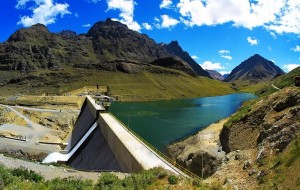 Access to clean water and sanitation for all is vital to the health of the global population, and it is important that everyone realises just how much water impacts on us and how important it is in maintaining a healthy lifestyle.
Access to clean water and sanitation for all is vital to the health of the global population, and it is important that everyone realises just how much water impacts on us and how important it is in maintaining a healthy lifestyle.
Access to fresh drinking water is vital at work as well, but not everyone has this life-saving liquid at their workplace. According to the UN, around 1.5 billion people work in a job directly related to water yet there is often a lack of safe drinking water in the working environment and approximately 38 workers die every hour due to water-related diseases.
The water quality in the UK is generally very good, with most homes and businesses being connected to the public water supply network which has consistently received high scores for outstanding compliance rates.
While those in the UK are not generally in any danger from the quality of the water, there are some challenges regarding low water quality. The water in the UK is threatened takes two different forms; direct problems as a result of local water shortages and an indirect threat via various impacts of global water shortages:
- Most of the available water in southern and eastern England comes from underground aquifers, which are at risk of over withdrawal. According to the Environmental Agency, there are several water-stressed areas in this region due to a population explosion as well as climate change.
- London does not get that much annual rain, which accounts for local water shortages – it actually gets far less than Sydney, Australia for instance.
- High level of imports from overseas affect the UK via global eater shortages, and can significantly impact the lives of those living in the UK
Water companies in the UK directly employ around 44,000 individuals who ensure that the other approximate 63 million people have access to quality tap water every day. It is up to them to see that we have clean drinking water, but it is also up to each and every one of us to ensure that we do not waste any water by fixing any leaks, recycling and reusing water wherever and whenever we can.





